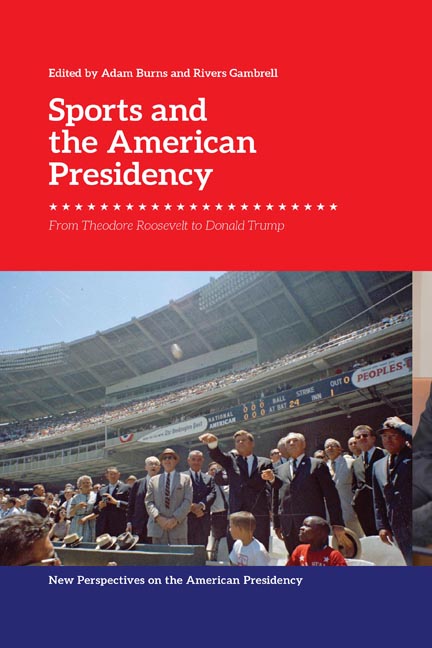13 - Donald Trump versus ‘Woke’ Athletes: Presidential Sport in the Age of Twitter
Published online by Cambridge University Press: 20 October 2023
Summary
The election of Donald J. Trump disrupted the normal course of politics in the United States. One of the casualties of that disruption was the tradition of American presidents welcoming championship teams to the White House. During the Trump presidency, this once largely benign custom became politicized, and offered an opportunity for ‘woke’ athletes to signal their opposition to the current resident of 1600 Pennsylvania Avenue.
Presidents of the United States began the practice of inviting athletic teams to meet with them at the White House shortly after the conclusion of the American Civil War. Since then, as sports have become increasingly central to the American experience, the custom has become almost routine for the champions of the major professional leagues. Ronald Reagan increased the frequency of such visits in the 1980s and, despite a few athletes opting out of attendance, most saw the chance to visit with the president as a signal honor. However, with the social media-driven hardening of political lines, the once pro forma events became increasingly controversial.
In an examination of Trump’s 2019 Twitter battle with U.S. Women’s National Team soccer player Megan Rapinoe, scholars found that Trump introduced themes of nationalism and race into his response to the star’s statements about the possibility of visiting the White House that will be discussed more below. Their research also found that while sporting events are often viewed through a nationalistic lens, this is less apparent on social media platforms such as Twitter. Trump also introduced race into his response by criticizing the National Basketball Association (NBA), which he tweeted, “now refuses to call owners, owners,” in response to the league’s decision to move away from the term, while he pushed through Criminal Justice Reform. Trump’s focus on nationalism and what he considered his good record on racial issues was not taken well by Twitter users. Arguably, Twitter and other social media platforms helped to create the situation that made visiting the White House problematic, particularly for Black athletes.
During his first six months in office, Trump, who has an extensive background in sports as both an athlete and team owner, continued the tradition of inviting athletes to the White House.
- Type
- Chapter
- Information
- Sports and the American PresidencyFrom Theodore Roosevelt to Donald Trump, pp. 278 - 299Publisher: Edinburgh University PressPrint publication year: 2022



